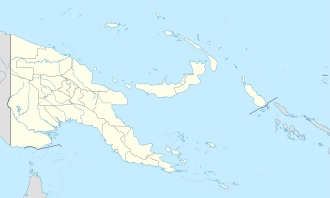 Satellite image | |
| Geography | |
|---|---|
| Location | Oceania |
| Coordinates | 11°08′S152°44′E / 11.133°S 152.733°E [1] |
| Archipelago | Louisiade Archipelago |
| Adjacent to | Solomon Sea |
| Total islands | 1 |
| Major islands |
|
| Area | 2.43 km2 (0.94 sq mi) |
| Highest elevation | 245 m (804 ft) |
| Highest point | Mount Bobo Eina |
| Administration | |
| Province | |
| District | Samarai-Murua District |
| LLG [2] | Louisiade Rural LLG |
| Island Group | Calvados Chain |
| Largest settlement | Bobo Eina |
| Demographics | |
| Population | 2 (2014) |
| Pop. density | 0.8/km2 (2.1/sq mi) |
| Ethnic groups | Papauans, Austronesians, Melanesians. |
| Additional information | |
| Time zone | |
| ISO code | PG-MBA |
| Official website | web |
Bobo Eina Island is an island in Papua New Guinea, part of the Calvados Chain within the Louisiade Archipelago. It is located near Bagaman Island. It is used as a fishermen camp for the men of Bagaman. In recent years, Bagaman islanders use Bobo Eina for gardening yams, and have also established a pig farm on the island.
